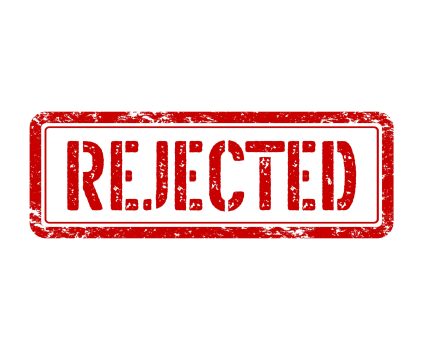
Censorship doesn’t always start with government bans or book burnings. Sometimes it’s quieter and harder to point to – like an ad that suddenly gets pulled, a policy that seems to change overnight or a message that’s allowed to run only after it’s been stripped of meaning.
At Americans United, we’ve seen that creeping censorship firsthand.
I’ve been with AU for a year and a half now, and one of the highlights has been launching our first-ever advertising campaigns to share AU’s mission with new audiences. In the summer of 2024, when Project 2025 started to make headlines, we knew we had to tell the public what was at stake. Thanks to my fantastic colleagues and strategic ad buying, we were able to launch a campaign and expose the threat of Project 2025.
As we were planning our marketing efforts for the fall of 2024, we felt uneasy and unsure of what the media and political landscape would look like after the election. We knew we wanted to go big and continue to lean into many of the advertising channels that had been successful for us already, such as podcasts, social media and display ads.
Our amazing in-house team wrote, designed and placed ads to each unique outlet’s standards. A bit of “sausage-making” explanation here if you’ve never bought ads as a nonprofit: Each different advertising outlet (website, radio, podcast, TV) has different thresholds of what phrasing you can use, especially if you or they are a 501(c)(3) nonprofit. So, what we can say in an ad on NPR is much different than what we can say on a podcast channel. To maintain our good standing as an advertising partner and ensure that the advertising channels are following the rules of their respective industries, we customize all advertising copy to ensure we’re within the given guidelines.
However, less than 24 hours before our ad campaign launched last October, I received a call from our podcast ad sales rep saying that one of the national nightly news programs, on TV and simultaneously shared on podcasts, had pulled our podcast ads that were to start the next day and run for three weeks. When I asked if they needed a rewrite, they answered no. The ad was pulled because it violated their policy on political ads. Naturally, I asked to see the policy and asked how often this occurred. The media buyer told me this is the first time, and they weren’t able to get the policy.
A week later, we found out we had our ads shut down on the display network, which runs across thousands of websites, due to “violations of c3 policy” which we had never been in violation of before. These were the exact same AU awareness-raising ads we had been running on and off all year, and suddenly they were in violation of the network’s policy, while no updates to the policy had been made.
A few weeks later, after much back-and-forth, we were able to appeal and get our display network ads up and running again. During this time, news also broke that a certain individual, known for being in the public spotlight and very litigious, had sued the news network where our podcast ads were set to air just a few weeks prior.
Since then, our Google and Meta ads have been paused or removed altogether multiple times. Often, we’re told we’re in violation of constantly shifting new policies on “political” or “religious” content – yet those policies continually can’t be produced or haven’t actually changed. In some cases, we’re able to get the same ads reinstated, but more often than not, we find we have to whitewash our advertising to the point that the ads hardly say anything at all aside from the organization’s name and where to find more information.
What’s happening to us is part of a bigger pattern: self-censorship in the face of political intimidation. Platforms are “obeying in advance” – silencing nonprofits or advocacy organizations not because the rules demand it, but because they fear political backlash. This should alarm every one of us.
When watchdogs like AU are silenced, the public hears less about the threats facing our democracy and more from those who are trying to dismantle it. And if media companies and ad platforms are already censoring themselves, imagine what happens if that fear is codified into government policy. Project 2025 spells out exactly that – a plan to use state power to silence dissent. What we see in advertising today could be the prelude to something far worse tomorrow.
At AU, we won’t stop fighting censorship. We’ll keep telling the truth – in our ads, in the courts and in the public square. When free speech is stifled, democracy is at risk, so our approach to censorship is simple: keep speaking, louder than ever.